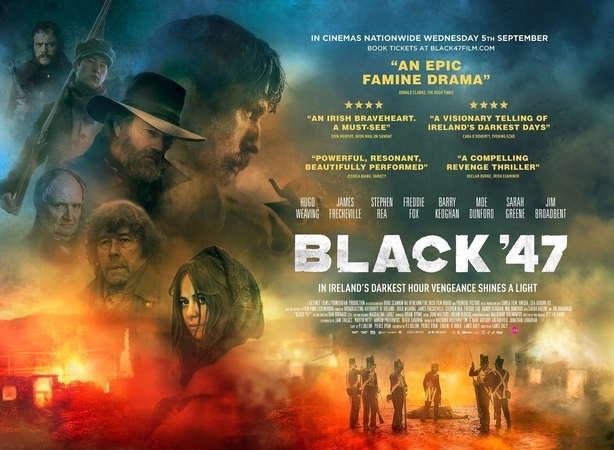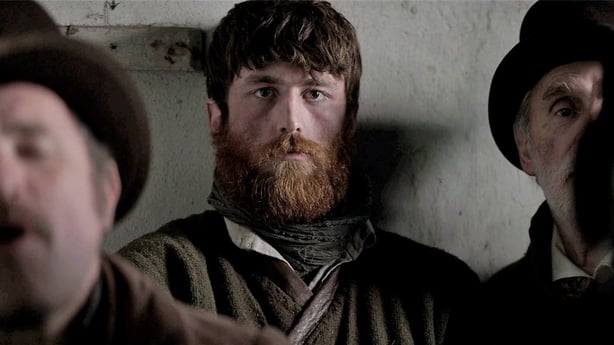Producer Macdara Kelleher writes for Culture about his new film, famine drama Black 47, which is released in cinemas nationwide this week.
When I was about twenty my Dad gave me a script for a famine movie, and asked me for my opinion on it. It was a terrible script and I told him as much. Needless to say it never got made. But the idea of making a famine movie lodged in my head.

It is (or was) the great untold story of Irish history. I optioned a script called The Ranger, which was essentially a revenge thriller set against the backdrop of the famine and I thought that was an interesting way into the subject matter. When Lance Daly came on board to direct, we discussed at length the weight of being the first film to depict the famine and the responsibility that came with that. As a result, the film became probably more cognisant of integrating the famine more into the story and what it means for an Irish and Irish American audience, but without ever losing sight of the fact that it was still, at its core, a mainstream movie going experience. We had various touch points of other movies and for me probably The Last of the Mohicans was the film that I referenced a lot. It’s a mainstream film that also successfully makes a powerful social commentary on the plight of the American Indian and the loss to a great extent of that culture.
We decided to change the title to Black 47 because it felt like although we were telling the story of one man coming home we also wanted it to be more representative of the time and place. In a way, it’s all of our stories.
The movie was very, very, tough to make. And there were definitely times, more than once when I thought about quitting.
For Irish Americans too, it’s the defining moment in their history, and one which is still very deeply felt. You can see that in the reactions and commentary online - a lot of people are still quite angry about it. In many cases, they carry with them stories of their grandparents or great-grandparents dying in a ditch or on the crossing, and it represents the loss of their 'real' Irishness in some way, which is quite devastating. Making the film definitely gave me a greater appreciation for our friends across the Atlantic and why it is so important to them to identify as Irish and why they return to find their roots (and why they like to dye the river green…).

The movie was very, very, tough to make. And there were definitely times, more than once when I thought about quitting. And I still think about going back in time and not making it… But through all those times, I would often think about the many people who lost their lives or were displaced and remember how fortunate we are to know nothing of hardship compared to what our countrymen and women went through in those dark days of Black 47.
Black 47 is in cinemas nationwide now.

